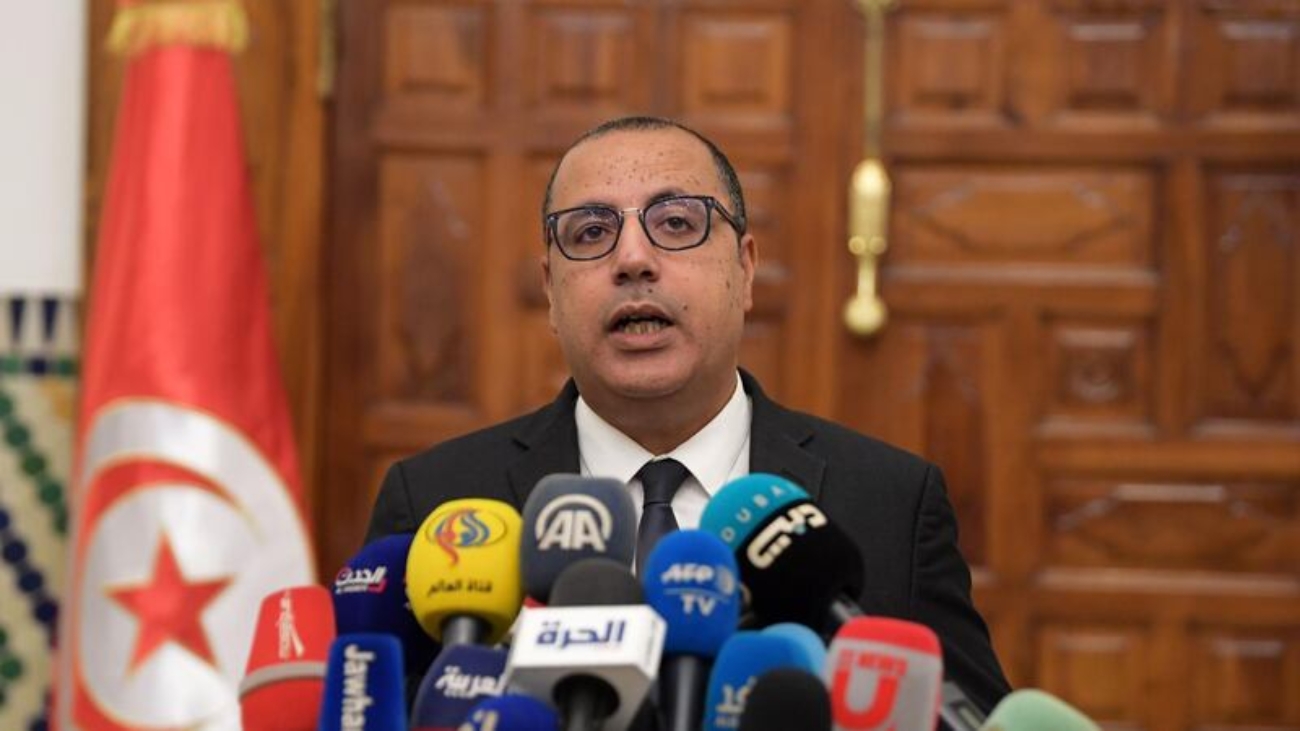Prime Minister-designate Hichem Mechichi is the third person to hold the post since elections last year
This piece was originally published on the thenational website https://thenational.ae/
Saad Boughdiri, a 68-year-old retiree, sits on the wall outside Parc Habib Thameur near central Tunis. For fourteen years, he says, he worked as a plumber and handyman at the Presidential Palace under Tunisia’s former autocrat, Zine El Abidine Ben Ali. Now, from underneath his broad straw hat, he watches people hurry past. Less than half are wearing the now mandatory face masks. Nearby, within the crowded Medina district, they’re ubiquitous.
“In the past the markets used to be filled with products from abroad, now there’s nothing,” he says.
Tunisia’s economic slide is unlikely to come as news to anyone. On Tuesday, the parliament is scheduled to vote confidence in the latest government to be tasked with halting that decline, a body of experts proposed by Prime Minister Designate, 46-year-old Hichem Mechichi.
From his perch outside the park, Mr Boughdiri isn’t aware of the vote.
Mr Mechichi is the third post holder since the country’s legislative elections last year. The first, Habib Jemli, nominated by the self-styled Muslim Democrats, Ennahda who won a plurality in October’s vote, was unable to secure the backing of the country’s fractious and splintered parliament. The second, Elyes Fakhfakh, nominated by President Kais Saied, resigned in July following corruption allegations. Now, despite the President’s reportedly uncertain support, Mr Mechichi proposes a technocratic government of experts to tackle Tunisia’s ingrained challenges.
Tunisia has made remarkable political gains since the revolution, the free speech once stifled by the apparatchiks of the Ben Ali regime is now commonplace. The pluralist democracy, which many fought for, is now entrenched within the bedrock of the country’s culture. However, as successive governments come and go, the unemployment figures, and the economy that fosters them, remains woeful.
Joblessness, which sat at a little over 13 per cent before the country’s landmark 2011 revolution, reached as high as 18 per cent in June of this year, with the young especially badly affected. The national currency, the dinar, which sat at 1.17 to the dollar before the revolution, now languishes at 2.73, less than half its former value. All the while, against a background of social unrest over joblessness, the trickle of illegal migrants that left the country following the initial deluge has again exploded.
“Mechichi’s an administrator, he’s just carrying out orders,” 40 year old teacher, Jamil Ali, explains on Rue de Paris in central Tunis, “I support the technocratic government, though it’s dangerous for democracy,” he tells a translator. “Many of the politicians since the revolution have served themselves rather than the country, but there are some who put the country first.”
Much of what Mr Ali says in the street finds an echo within parliament. Ennahda, the largest party with 54 seats within the 217-seat legislature, initially condemned the technocratic government, citing its undemocratic nature, though its governing Shura Council later voted to support its passage early on Tuesday morning. Among others, the Democratic Current, which controls 38 seats has already voiced its opposition to the proposed government, making the 109 votes the government needs to pass a distant prospect.
The alternative is early elections and with the Free Destourian Part (PDL), a group founded by former members of the Ben Ali regime, registering a fourteen-point lead over their Muslim democrat rivals in an August poll, it’s unclear if that’s a choice Ennahda are ready to make.
“There is no doubt that early elections will further delay the (formation) of a credible economic recovery plan,” Dr Elie Abouaoun, the Tuni-based Director of the MENA programme for the United States Institute for Peace wrote in an email.
Furthermore, delays in establishing that plan would inevitably lead to still further delays in negotiating the sorely needed international assistance package Tunisia relies upon.
“So, the cost in this case will be quite heavy on an ailing economy that was further affected by Covid-19,” Dr Abouaoun continued. Adding that, not only would fresh elections bring delays in themselves, “but also the fact that it is very likely that any new legislature will come as quite fragmented which will make forming a government and legislating an arduous exercise,” he wrote.
However, for Dr Abouaoun, a purely technocratic government’s chances of success looked equally dim, he said, citing the difficulty of forcing legislation through a potentially hostile parliament,
“The problems Tunisia suffers from are essentially political, and their solution requires adjusting the expectations of the population to what can be achieved in the span of a few years, given Tunisia’s limited resources and the global recession,” Dr Abouaoun wrote.
“One can argue that some ministers need to be picked from a pool of technocrats or experts. But beyond specific subject matter expertise, any government needs to have political clout without which Tunisia’s decline will not be slowed down,” he told The National.
It’s a difficult dilemma. However, for a country that has overcome so much, not an impossible one.
On Rue de Paris, Mr Ali remains sanguine. “There’s hope,“ he laughs, “ we can’t live without hope.”

